PEN America’s Free Expression Student Summit – Harvard College
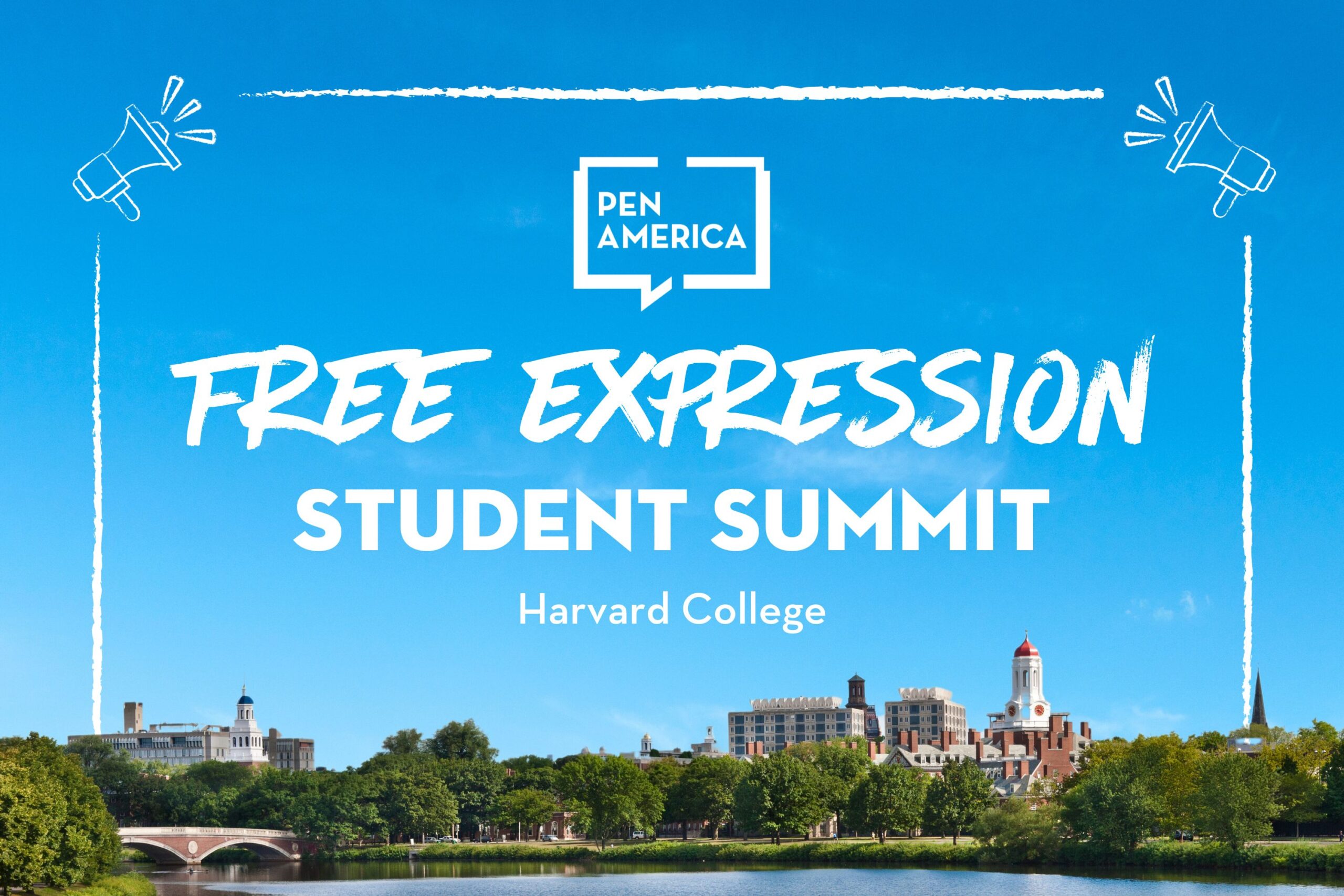
PEN America is coming to Harvard College this January for our first-ever Free Expression Student Summit for college students in Boston. This day-and-a-half-long program will feature a keynote panel and workshop series covering various free expression topics from across PEN America’s field of work, as well as an advocacy simulation activity where students will be able to design campaigns centering issues they care about.
The Summit will begin on January 18 with a public keynote panel that will discuss the role of college students and future leaders in combating censorship, hate, and the spread of disinformation. The following day, open for registered undergraduate students only, will consist of several workshops that students can choose from to acquire training in the theories, laws, and practical challenges facing professionals in different areas of free expression work. Following the workshops, students will then convene together for an advocacy campaign simulation activity, choosing an issue they care about, conceptualizing a theory of change, and designing an event, program, or initiative to address the issue.
This event is open to the public and the January 19 workshops are open to registered undergraduate students only. For registered undergraduate students, dinner will be provided on the first night, and breakfast and lunch will be provided on the second day. Capacity is limited so register as soon as possible. If you have any questions, please contact us at [email protected].
WELCOME REMARKS:
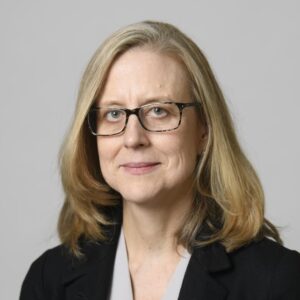
Amanda Claybaugh is the Dean of Undergraduate Education and Samuel Zemurray Jr. and Doris Zemurray Stone Radcliffe Professor of English at Harvard College. Claybaugh received a BA in English from Yale University in 1993 and a PhD in English from Harvard University in 2001. After teaching at Columbia University for nine years, Claybaugh returned to Harvard in 2010. Claybaugh is on the faculty of the English department, and for four years chaired the program in History and Literature. Claybaugh’s scholarship focuses on nineteenth-century literature and history, with a particular attention to the role that teachers and writers play in times of social change. Claybaugh’s first book, The Novel of Purpose: Literature and Social Reform in the Anglo-American World, was awarded the Rudikoff Prize in Victorian studies. Since then, Claybaugh has continued to publish scholarly articles, but also now writes in more public venues, such as the London Review of Books, Public Books, and n+1.
Keynote SpeakerS:
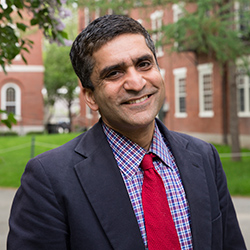 Rakesh Khurana (Moderator) is the Danoff Dean of Harvard College, Marvin Bower Professor of Leadership Development at Harvard Business School, and Professor of Sociology in the Faculty of Arts and Sciences. A distinguished scholar of organizational behavior and leadership, and award-winning teacher, Khurana has been deeply involved in undergraduate education throughout his time at Harvard, having served on a number of policy committees, and served as Faculty Dean of Cabot House with his wife, Stephanie. Dean Khurana has also written extensively about the CEO labor market and business education. He has co-edited “The Handbook for Leadership Theory and Practice” and “The Handbook for Teaching Leadership,” seminal texts on leadership theory and pedagogical practice. He has been recognized for his commitment to pedagogy, twice earning the Charles M. Williams Award for Excellence in Teaching. “From Higher Aims to Hired Hands: The Social Transformation of American Business Schools and the Unfulfilled Promise of Management as a Profession” (2007) received the American Sociological Association’s Max Weber Book Award. He is currently working on the role of globalization and its impact on American business culture. Khurana received his B.S. from Cornell University, and earned his Ph.D. from Harvard University.
Rakesh Khurana (Moderator) is the Danoff Dean of Harvard College, Marvin Bower Professor of Leadership Development at Harvard Business School, and Professor of Sociology in the Faculty of Arts and Sciences. A distinguished scholar of organizational behavior and leadership, and award-winning teacher, Khurana has been deeply involved in undergraduate education throughout his time at Harvard, having served on a number of policy committees, and served as Faculty Dean of Cabot House with his wife, Stephanie. Dean Khurana has also written extensively about the CEO labor market and business education. He has co-edited “The Handbook for Leadership Theory and Practice” and “The Handbook for Teaching Leadership,” seminal texts on leadership theory and pedagogical practice. He has been recognized for his commitment to pedagogy, twice earning the Charles M. Williams Award for Excellence in Teaching. “From Higher Aims to Hired Hands: The Social Transformation of American Business Schools and the Unfulfilled Promise of Management as a Profession” (2007) received the American Sociological Association’s Max Weber Book Award. He is currently working on the role of globalization and its impact on American business culture. Khurana received his B.S. from Cornell University, and earned his Ph.D. from Harvard University.
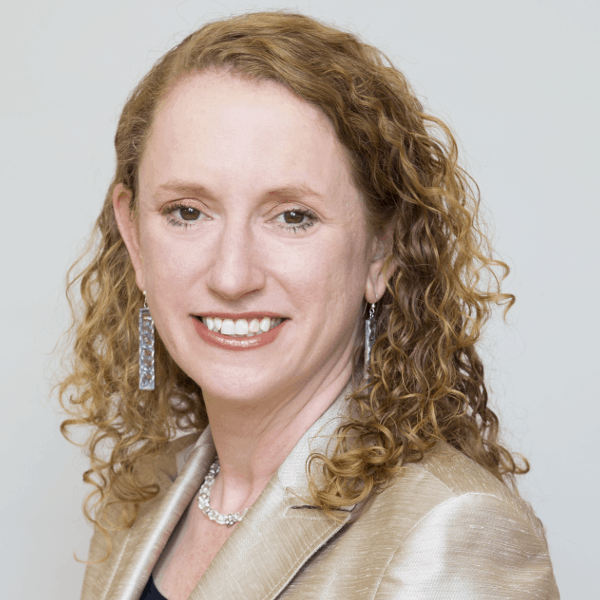 Suzanne Nossel is Chief Executive Officer at PEN America and author of Dare to Speak: Defending Free Speech for All. Prior to joining PEN America, she served as the Chief Operating Officer of Human Rights Watch and as Executive Director of Amnesty International USA. She has served in the Obama Administration as Deputy Assistant Secretary of State for International Organizations, leading US engagement in the UN and multilateral institutions on human rights issues, and in the Clinton Administration as Deputy to the US Ambassador for UN Management and Reform. Nossel coined the term “Smart Power,” which was the title of a 2004 article she published in Foreign Affairs Magazine and later became the theme of Secretary of State Hillary Clinton’s tenure in office. She is a featured columnist for Foreign Policy magazine and has published op-eds in The New York Times, Washington Post, and LA Times, as well as scholarly articles in Foreign Affairs, Dissent, and Democracy, among others. Nossel serves on the Board of Directors of the Tides Foundation. She is a former senior fellow at the Century Foundation, the Center for American Progress, and the Council on Foreign Relations. Nossel is a magna cum laude graduate of both Harvard College and Harvard Law School.
Suzanne Nossel is Chief Executive Officer at PEN America and author of Dare to Speak: Defending Free Speech for All. Prior to joining PEN America, she served as the Chief Operating Officer of Human Rights Watch and as Executive Director of Amnesty International USA. She has served in the Obama Administration as Deputy Assistant Secretary of State for International Organizations, leading US engagement in the UN and multilateral institutions on human rights issues, and in the Clinton Administration as Deputy to the US Ambassador for UN Management and Reform. Nossel coined the term “Smart Power,” which was the title of a 2004 article she published in Foreign Affairs Magazine and later became the theme of Secretary of State Hillary Clinton’s tenure in office. She is a featured columnist for Foreign Policy magazine and has published op-eds in The New York Times, Washington Post, and LA Times, as well as scholarly articles in Foreign Affairs, Dissent, and Democracy, among others. Nossel serves on the Board of Directors of the Tides Foundation. She is a former senior fellow at the Century Foundation, the Center for American Progress, and the Council on Foreign Relations. Nossel is a magna cum laude graduate of both Harvard College and Harvard Law School.
Randall Kennedy 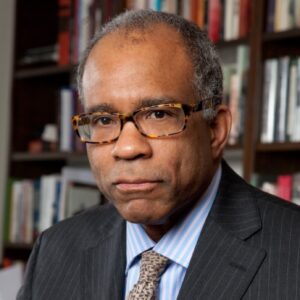 is Michael R. Klein Professor at Harvard Law School where he teaches courses on contracts, criminal law, and the regulation of race relations. He was born in Columbia, South Carolina. For his education he attended St. Albans School, Princeton University, Oxford University, and Yale Law School. He served as a law clerk for Judge J. Skelly Wright of the United States Court of Appeals and for Justice Thurgood Marshall of the United States Supreme Court. He is a member of the bar of the District of Columbia and the Supreme Court of the United States. Awarded the 1998 Robert F. Kennedy Book Award for Race, Crime, and the Law, Mr Kennedy writes for a wide range of scholarly and general interest publications. His other books are For Discrimination: Race, Affirmative Action, and the Law (2013), The Persistence of the Color Line: Racial Politics and the Obama Presidency (2011), Sellout: The Politics of Racial Betrayal (2008), Interracial Intimacies: Sex, Marriage, Identity, and Adoption (2003), and Nigger: The Strange Career of a Troublesome Word (2002). A member of the American Law Institute, the American Academy of Arts and Sciences, and the American Philosophical Association, Mr. Kennedy is also a Trustee emeritus of Princeton University.
is Michael R. Klein Professor at Harvard Law School where he teaches courses on contracts, criminal law, and the regulation of race relations. He was born in Columbia, South Carolina. For his education he attended St. Albans School, Princeton University, Oxford University, and Yale Law School. He served as a law clerk for Judge J. Skelly Wright of the United States Court of Appeals and for Justice Thurgood Marshall of the United States Supreme Court. He is a member of the bar of the District of Columbia and the Supreme Court of the United States. Awarded the 1998 Robert F. Kennedy Book Award for Race, Crime, and the Law, Mr Kennedy writes for a wide range of scholarly and general interest publications. His other books are For Discrimination: Race, Affirmative Action, and the Law (2013), The Persistence of the Color Line: Racial Politics and the Obama Presidency (2011), Sellout: The Politics of Racial Betrayal (2008), Interracial Intimacies: Sex, Marriage, Identity, and Adoption (2003), and Nigger: The Strange Career of a Troublesome Word (2002). A member of the American Law Institute, the American Academy of Arts and Sciences, and the American Philosophical Association, Mr. Kennedy is also a Trustee emeritus of Princeton University.
John W. Boyer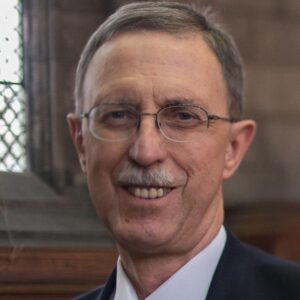 is Senior Advisor to the President and the Martin A. Ryerson Distinguished Service Professor at the University of Chicago. He served as Dean of the College from 1992 until 2023, making him the longest-tenured dean in the College’s history. Boyer was also deeply involved in the founding of the University of Chicago Center in Paris. He worked to create many new opportunities for College students involving foreign study, internships, and foreign language instruction; to broaden student research opportunities; to enhance the relationship of the College to the professional schools; to build four major on-campus facilities for residential life and to enhance faculty leadership of the College’s residential system; to strengthen programmatic and financial resources for student life; and to provide strong career advising programs for College students. Boyer has served as an Editor of the Journal of Modern History since 1980. A specialist in the history of the Habsburg Empire and of Central Europe in the nineteenth and twentieth centuries, Boyer received his Ph.D. from the University of Chicago in 1975 and joined the faculty in the same year. Boyer has written four books on Central European history – Political Radicalism in Late Imperial Vienna: Origins of the Christian Social Movement, 1848-1897 (for which he was awarded the John Gilmary Shea Prize); and Culture and Political Crisis in Vienna: Christian Socialism in Power, 1897-1918 (for which he was awarded the Ludwig Jedlicka Prize), both of which were published by the University of Chicago Press. Karl Lueger (1844-1910): Christlichsoziale Politik als Beruf, published by the Böhlau Verlag in Vienna in 2010 and, most recently, Austria 1867-1955 was published with Oxford University Press in 2022. Boyer regularly teaches the history of European Civilization in the College, and courses on religion and politics in modern European history and on the history of the Habsburg Empire and modern Germany.
is Senior Advisor to the President and the Martin A. Ryerson Distinguished Service Professor at the University of Chicago. He served as Dean of the College from 1992 until 2023, making him the longest-tenured dean in the College’s history. Boyer was also deeply involved in the founding of the University of Chicago Center in Paris. He worked to create many new opportunities for College students involving foreign study, internships, and foreign language instruction; to broaden student research opportunities; to enhance the relationship of the College to the professional schools; to build four major on-campus facilities for residential life and to enhance faculty leadership of the College’s residential system; to strengthen programmatic and financial resources for student life; and to provide strong career advising programs for College students. Boyer has served as an Editor of the Journal of Modern History since 1980. A specialist in the history of the Habsburg Empire and of Central Europe in the nineteenth and twentieth centuries, Boyer received his Ph.D. from the University of Chicago in 1975 and joined the faculty in the same year. Boyer has written four books on Central European history – Political Radicalism in Late Imperial Vienna: Origins of the Christian Social Movement, 1848-1897 (for which he was awarded the John Gilmary Shea Prize); and Culture and Political Crisis in Vienna: Christian Socialism in Power, 1897-1918 (for which he was awarded the Ludwig Jedlicka Prize), both of which were published by the University of Chicago Press. Karl Lueger (1844-1910): Christlichsoziale Politik als Beruf, published by the Böhlau Verlag in Vienna in 2010 and, most recently, Austria 1867-1955 was published with Oxford University Press in 2022. Boyer regularly teaches the history of European Civilization in the College, and courses on religion and politics in modern European history and on the history of the Habsburg Empire and modern Germany.
 Keith E. Whittington is the William Nelson Cromwell Professor of Politics at Princeton University and is currently the chair of Academic Freedom Alliance and a visiting fellow at the Hoover Institution. He works on American constitutional history, politics and law, and on American political thought. He is the author of Repugnant Laws: Judicial Review of Acts of Congress from the Founding to the Present and Speak Freely: Why Universities Must Defend Free Speech, among other works. He has been a visiting professor at Harvard Law School, Georgetown University Law Center, and the University of Texas School of Law, and he is a member of the American Academy of Arts and Sciences. He served on the Presidential Commission on the Supreme Court of the United States. He did his undergraduate work at the University of Texas at Austin and completed his Ph.D. in political science at Yale University
Keith E. Whittington is the William Nelson Cromwell Professor of Politics at Princeton University and is currently the chair of Academic Freedom Alliance and a visiting fellow at the Hoover Institution. He works on American constitutional history, politics and law, and on American political thought. He is the author of Repugnant Laws: Judicial Review of Acts of Congress from the Founding to the Present and Speak Freely: Why Universities Must Defend Free Speech, among other works. He has been a visiting professor at Harvard Law School, Georgetown University Law Center, and the University of Texas School of Law, and he is a member of the American Academy of Arts and Sciences. He served on the Presidential Commission on the Supreme Court of the United States. He did his undergraduate work at the University of Texas at Austin and completed his Ph.D. in political science at Yale University
WORKSHOP FACILITATORS:
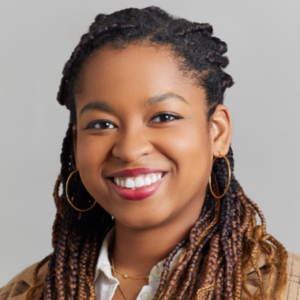 Sabrina Adams is the PEN Across America program manager supporting the organization’s goal to mobilize PEN America communities nationwide to promote literary culture and defend free expression. Before joining PEN America, she was the membership coordinator at Association Forum in Chicago, IL, where she developed membership programs, maintained member data, and responded to member inquiries. A native Midwesterner, Adams has also interned for U.S. Senator Tammy Baldwin in her Milwaukee, WI and Washington, DC. offices. She is a graduate of Loyola University Chicago with a BA in political science and a BBA in marketing.
Sabrina Adams is the PEN Across America program manager supporting the organization’s goal to mobilize PEN America communities nationwide to promote literary culture and defend free expression. Before joining PEN America, she was the membership coordinator at Association Forum in Chicago, IL, where she developed membership programs, maintained member data, and responded to member inquiries. A native Midwesterner, Adams has also interned for U.S. Senator Tammy Baldwin in her Milwaukee, WI and Washington, DC. offices. She is a graduate of Loyola University Chicago with a BA in political science and a BBA in marketing.
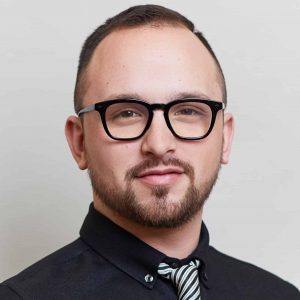 Nicholas “Niko” Perez is the program manager of free expression and education at PEN America. Perez leads Next Gen PEN America, PEN America’s campaign dedicated to empowering a new generation of free expression advocates and building a youth advocacy network that can work together to facilitate positive change. Perez previously worked for the Columbia University Human Rights Advocates Program and consulted for the Human Rights Education and Training section at the United Nations. He holds a master’s degree from Columbia University in human rights and humanitarian policy and a bachelor’s degree from Georgetown University in international politics. He also was a Global Leadership Fellow at Waseda University in Japan, a Model United Nations advisor at Mira Costa High School, and a forensics researcher for the Yahad-in Unum genocide research agency.
Nicholas “Niko” Perez is the program manager of free expression and education at PEN America. Perez leads Next Gen PEN America, PEN America’s campaign dedicated to empowering a new generation of free expression advocates and building a youth advocacy network that can work together to facilitate positive change. Perez previously worked for the Columbia University Human Rights Advocates Program and consulted for the Human Rights Education and Training section at the United Nations. He holds a master’s degree from Columbia University in human rights and humanitarian policy and a bachelor’s degree from Georgetown University in international politics. He also was a Global Leadership Fellow at Waseda University in Japan, a Model United Nations advisor at Mira Costa High School, and a forensics researcher for the Yahad-in Unum genocide research agency.
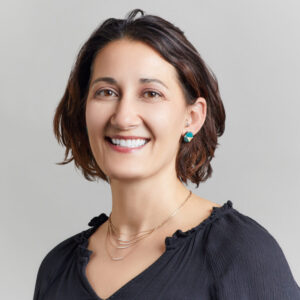 Kristen Shahverdian is the program manager of free expression and education at PEN America, developing campus engagements and public events related to free expression and education. Teaching has been a consistent interest throughout her career: After a decade in dance and choreography, she began researching best practices for participatory art projects and how to teach art that depicts violence and traumatic events. She previously served as a project manager for the Philadelphia Folklore Project, and facilitated workshops on trauma and art at the College Art Association and Dance Studies Association. She is also a writer and editor at the online dance journal thINKingDANCE. Before joining PEN America, she was a senior lecturer at the University of the Arts in Philadelphia and previously was an adjunct professor at Rowan University and Temple University. She received her BA in history and dance from Hamilton College, her MFA in dance from Temple University, and her MA in socially engaged art from Moore College of Art & Design.
Kristen Shahverdian is the program manager of free expression and education at PEN America, developing campus engagements and public events related to free expression and education. Teaching has been a consistent interest throughout her career: After a decade in dance and choreography, she began researching best practices for participatory art projects and how to teach art that depicts violence and traumatic events. She previously served as a project manager for the Philadelphia Folklore Project, and facilitated workshops on trauma and art at the College Art Association and Dance Studies Association. She is also a writer and editor at the online dance journal thINKingDANCE. Before joining PEN America, she was a senior lecturer at the University of the Arts in Philadelphia and previously was an adjunct professor at Rowan University and Temple University. She received her BA in history and dance from Hamilton College, her MFA in dance from Temple University, and her MA in socially engaged art from Moore College of Art & Design.
SCHEDULE:
Thursday, January 18, 2024
|
Activity |
Starts |
Ends |
|
Welcome Remarks and Dinner (for registered undergraduate students only) |
5:30pm |
6:30pm |
|
Public Welcome and Introductory Remarks |
6:30pm |
6:45pm |
|
Keynote Panel: “Combating Censorship, Disinformation, and Hate” |
6:45pm |
8:00pm |
*subject to change
Friday, January 19, 2024
(For registered undergraduate students only)
|
Activity |
Starts |
Ends |
|
Welcome Breakfast |
8:30am |
9:20am |
|
Keynote Speaker and Q&A |
9:30am |
10:20am |
|
Large Group Workshop: Conceptual Foundations of Free Speech Advocacy |
10:30am |
11:20am |
|
Concurrent Workshop Options |
11:30am |
12:20pm |
|
Lunch |
12:20pm |
1:15pm |
|
Concurrent Workshop Options |
1:30pm |
2:20pm |
|
Full Group Reflection and Conversation |
2:30pm |
3:00pm |
|
Closing Remarks |
3:00pm |
3:15pm |
|
Survey and Group Photo |
3:15pm |
3:30pm |
*subject to change
Workshops:
Conceptual Foundations of Free Expression Advocacy
For 100 years, PEN America has brought a unique lens to free expression advocacy, defending not only the free exchange of ideas, but also celebrating the power of the written word, and standing against disinformation and hate. In the United States, the right to free expression is guaranteed by the First Amendment and bolstered by strong Supreme Court case precedents that uphold free speech except in the most extreme of circumstances. Internationally, this right is upheld by the Universal Declaration of Human Rights and the International Covenant on Civil and Political Rights. As an organization that advocates for free speech in the U.S. and around the world, how do the First Amendment and international human rights factor into our guiding philosophy though as an organization? This session will discuss the foundational documents, thinkers, and ideas that inspire and animate PEN America as an organization to advocate for freedom of expression.
Academic Freedom and Free Speech on Campus
Free speech has become a flashpoint for controversy on campuses across the U.S. In today’s debate over free speech on campus, our philosophy is guided by the 1948 PEN Charter to stand for the “unhampered transmission of thought,” to “oppose any form of suppression of freedom of expression,” and to “dispel race, class, and national hatreds.” We believe that for a campus to be open to all ideas, it must be genuinely open to all people, including those from less traditional backgrounds and those from previously excluded groups. In this workshop, we will discuss guiding principles for campus free speech and academic freedom, and analyze solutions for campuses to robustly defend free speech and open inquiry while simultaneously advancing principles of diversity, equity, and inclusion.
The Ethics of Storytelling: Rethinking Cancel Culture, Appropriation, and Accountability
Literary and human rights organization, PEN America, believes that all writers and artists should experience the freedom to imagine and create vibrant and exploratory worlds without censorship. What happens though when a creator bases their work around a story from a community they do not belong to? Do creators have an intrinsic responsibility to consider accuracy, representation, and ownership when dealing with another’s art or history? In this session, PEN America will invite students to think about the ethical and moral implications of storytelling, and where to draw the lines around creative expression, appropriation, and authenticity. We will discuss non-censorious approaches to stories and art we find inaccurate or distasteful, and consider innovative methods of counterspeech as ways to spread awareness and push for social accountability.
Counter-Speech: Protest Rights and the Freedom of Assembly
Counter-speech is a key component of free speech in a democracy: the ability to speak out and use voice to counter or respond to speech one finds disfavorable. This includes protest and peaceful assembly, which is a fundamental, constitutional right in the U.S., arising from the First Amendment. While respect for Constitutional rights should, in theory, be nonpartisan, protest has long been and remains a fiercely political issue, particularly as a form of expression often wielded against those currently holding political power. In this session we will discuss why it is vital to advocate on behalf of those who are censored in a democracy, and ways it can be done, as well as discuss how to practice allyship when one witnesses hate and harassment.





